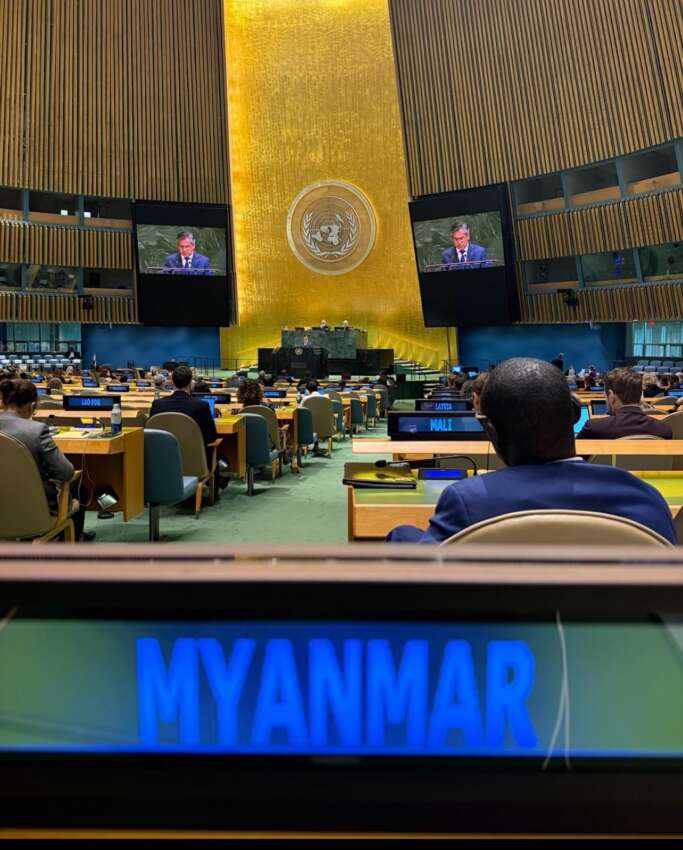
Myanmar’s Permanent Representative to the United Nations, Ambassador U Kyaw Moe Tun, has revealed that Myanmar has become one of the countries recording new HIV infections following the destruction of its healthcare sector due to the military’s illegal coup. This disclosure was made during discussions on the Implementation of the Declaration of Commitment on HIV/AIDS and the Political Declaration on HIV/AIDS at the United Nations General Assembly in New York.
Following the February 2021 military coup, the implementation of HIV programs has faced severe challenges. The military’s indiscriminate attacks, including airstrikes and bombing campaigns, have severely damaged healthcare facilities and medical infrastructure. Myanmar recognizes HIV as a priority public health issue alongside tuberculosis and malaria, and has now become one of 35 countries globally where 90% of new HIV infections are being recorded. The country’s healthcare system has been reduced to a shell, with HIV patients struggling tremendously to access medications, injections, and healthcare services.
Under the elected civilian government, there had been hope for HIV/AIDS elimination with strategically planned comprehensive programs and coordinated implementation at all levels. However, the current deteriorating situation is deeply concerning. The development, financial, economic, and social decline faced by Myanmar’s people since the military coup has been further exacerbated by the devastating earthquake in March. According to UNDP’s latest report on Myanmar, more than half of Yangon’s population, the country’s economic center, faces poverty. Currently, 3.5 million people across Myanmar are internally displaced, and over 20 million people require humanitarian assistance.
The National Unity Government’s Ministry of Health, in collaboration with ethnic revolutionary organizations and other relevant stakeholders, is working to combat HIV/AIDS through various initiatives, including public awareness campaigns. The international community has been urged to take firm action against the military regime, including cutting off their access to weapons and aviation fuel. The military’s use of humanitarian aid and medical supplies as weapons must be stopped, and the military dictatorship must be completely eliminated as it remains the root cause of Myanmar’s crisis. The vulnerability of HIV patients in Myanmar, one of the least developed countries, makes them heavily dependent on support from development partners, and any funding cuts have severe impacts on their well-being.



